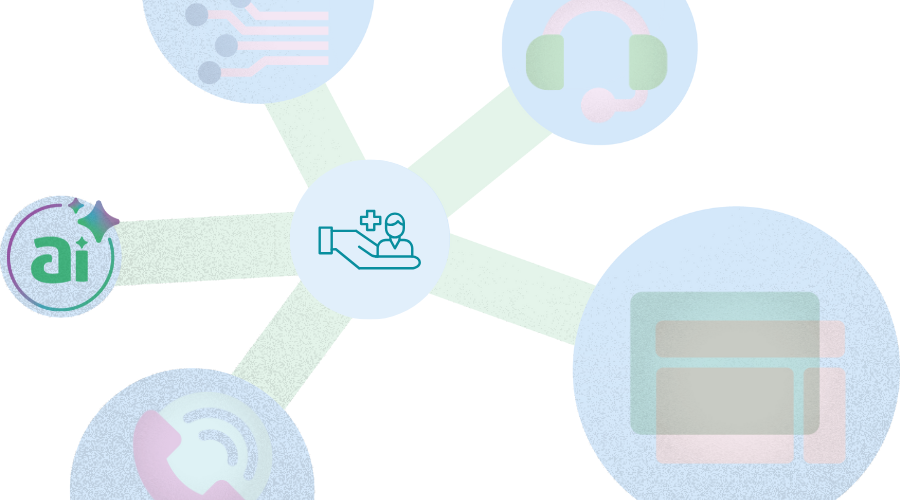The ethical considerations of using AI and other technologies in healthcare communication are a growing area of concern. While technology offers a range of benefits, there are also potential downsides that need careful attention to ensure ethical use. We’ll examine some key areas to consider and give an example of a policy about the use of AI in healthcare communication.
Privacy and Data Security
Keeping patient information secure is a top priority for health organization. The data contained within a patient’s electronic protected health information (ePHI) can fetch a premium price on the dark web. Healthcare communication technologies often involve sharing sensitive patient data, so robust security measures are crucial to protect patient privacy and ensure compliance with HIPAA regulations.
Cybersecurity breaches can expose confidential patient information. Healthcare organizations must have strong data security protocols in place, and work with trusted vendors who are also adhere to HIPAA’s Business Associates contract, to minimize these risks.
Access and Equity
There is a digital divide when it comes to technology. Not everyone has reliable internet access or feels comfortable using tech. This can disadvantage certain populations and exacerbate existing healthcare disparities.
Socioeconomic factors such as the cost of internet access or devices needed to manage someone’s healthcare or participate in telehealth can create barriers for low-income patients.
Algorithmic Bias
Some communication technologies in healthcare utilize or are powered by artificial intelligence (AI). There’s a risk of bias creeping into algorithms used for diagnosis or treatment decisions, potentially disadvantaging certain patient groups.
Patients have a right to understand how communication technologies are used and how their data is protected. Clear communication and informed consent are essential. Over-reliance on technology can also lead to a de-personalized approach to patient care. The human element of communication shouldn’t be neglected.
Here are some ways to address these ethical concerns:
- Develop clear policies on data security, patient privacy, and the use of AI in healthcare communication.
- Focus on equitable access by providing alternative communication channels and bridging the digital divide.
- Promote transparency by informing patients about how technology is used in their care and obtaining their informed consent.
- Maintain a human touch by ensuring that technology supplements and enhances human interaction, not replaces it.
Policy on the Use of Artificial Intelligence (AI) in Healthcare Communication
Below is a general example of a policy on the use of AI in a hospital environment. In the real world, organizations will work with their administrators, IT staff, and applicable vendors to fit their specific needs and regulatory environment. However, it provides a starting point for considering the ethical implications of AI use in healthcare communication and developing policies to mitigate risks while harnessing the potential benefits of this technology.
Introduction
This policy outlines the guidelines for using artificial intelligence (AI) technologies in communication with patients and healthcare providers at [Hospital Name]. Our commitment is to leverage AI to improve communication efficiency, but we acknowledge the ethical considerations involved.
Principles
Transparency: Patients have the right to know if AI is used in their communication with the hospital. We will clearly disclose the use of AI chatbots or other technologies and explain their limitations.
Patient Choice: Patients always have the option to speak with a human healthcare professional if they prefer not to communicate through AI channels.
Data Privacy: All patient data collected through AI communication tools will be protected according to HIPAA regulations. De-identified data may be used for improving AI performance, but only with appropriate safeguards.
Equity and Fairness: We acknowledge the potential for bias in AI algorithms. We will select and implement AI tools that have been tested for fairness and avoid discrimination against any patient group.
Use Cases for AI in Healthcare Communication
- Appointment scheduling and reminders: AI chatbots can be used to schedule appointments, send confirmation messages, and provide appointment details.
- Answering basic patient questions: AI can answer frequently asked questions about hospital services, billing, or insurance.
- Symptom checkers and triage tools: AI-powered tools can help patients with initial symptom assessment and guide them to the appropriate resources within the hospital.
Responsibilities
IT Department: Responsible for selecting and implementing AI communication tools that meet security and privacy standards.
Healthcare Providers: Responsible for overseeing the use of AI in communication with patients and ensuring clear communication about limitations and availability of human support.
Compliance Department: Responsible for ensuring compliance with HIPAA regulations and other relevant data privacy laws related to AI use.
Monitoring and Review
This policy will be reviewed and updated periodically to reflect advances in AI technology and best practices. We will monitor the use of AI communication tools to ensure they function as intended and address any identified issues.
By carefully considering these ethical issues and proactively implementing safeguards, healthcare organizations can leverage technology’s potential for improved communication while ensuring patient privacy, equity, and responsible use of these powerful tools.





